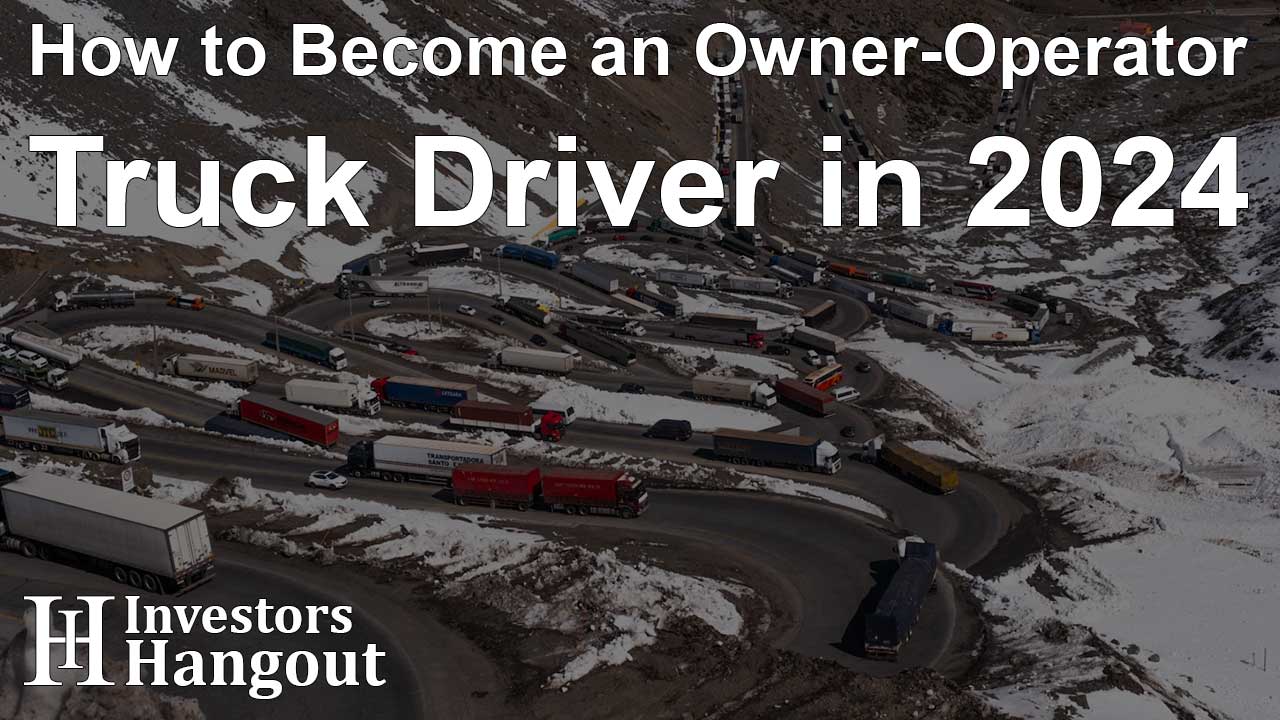How to Become an Owner-Operator Truck Driver in 2024

Starting Your Journey as an Independent Truck Owner-Operator in 2024
Most truck drivers will consider becoming a truck owner operator at a certain point in their career. Getting their truck and working independently sounds great, but there are a few things you need to consider first. It is a challenging job that might not be the perfect fit for everyone but it is worth considering if you are ready to put in the effort. This article shares tips on how to become an owner-operator in 2024 and what to expect from it.
Owner operator truck driver explained
An owner operator is someone that drives the truck and manages the business. Unlike the traditional truck driving job where you work for a company that guides you, working independently means that you take care of everything from start to finish.
First, you need to establish a network of clients and communicate with them. Also leasing the truck, driving and other tasks such as loading and unloading are your obligations. In addition, truck maintenance is on your to do list. Covering the business costs, planning routes, administrative tasks, and DOT records are also your responsibility.
It looks like you have a lot on your plate. Even though an owner-operator takes all the responsibilities, they have full control over what they're taking. So, if you don't like working for a certain business or industry, you can always say no. And if that sounds amazing, wait until you hear that you get to set your rates. Yes, owner-operators can set and negotiate their rates with the client.
Company truck driver vs owner-operator
Are you wondering what is the difference between being an owner-operator versus a company truck driver? We break this down for you. A company truck driver typically has fewer responsibilities outside of driving, as the company provides the truck, covers maintenance costs, and arranges loads. They do the driving and their career takes care of the rest. A truck driver gets a salary based on their working hours.
On the other hand, owner-operators manage the whole process and can decide which loads to take. A freight agent can also be considered an owner-operator as they hire and manage drivers.
How to Become an Operator
Costs
Being an independent owner-operator sounds great, but keep in mind that you need to invest. This is one of the businesses that requires a budget. Count in the lease, insurance, legal fees, equipment, and marketing. Do some research, find out about the costs in your area, and sum things up.
Business plan
Owner-operators can decide whether to operate their business or lease their vehicles to a carrier. If you do it under your authority, you have complete freedom. However, you will have more responsibilities such as marketing your business, establishing connections with clients, and covering all the costs. The second option is leasing to a motor carrier. This means that an agent will work for you and secure your loads. They will help you find work and market your business. However, they will charge a commission.
Regulatory compliance
Heavy Vehicle Use Tax, and International Fuel Tax Agreements are a must for owner-operators. The heavy vehicle use tax is paid once a year, and the amount depends on the vehicle's size. The fuel tax agreement means you should report the fuel use and pay taxes. The fuel tax is paid once a year, and the amount depends on the vehicle's size. Unlike the HVUT, IFTA taxes are usually filed quarterly, not annually, and the tax rate varies by jurisdiction rather than vehicle size. This helps ensure that fuel taxes are distributed fairly based on where the fuel was consumed.
About The Author
Contact Addison Perry privately here. Or send an email with ATTN: Addison Perry as the subject to contact@investorshangout.com.
About Investors Hangout
Investors Hangout is a leading online stock forum for financial discussion and learning, offering a wide range of free tools and resources. It draws in traders of all levels, who exchange market knowledge, investigate trading tactics, and keep an eye on industry developments in real time. Featuring financial articles, stock message boards, quotes, charts, company profiles, and live news updates. Through cooperative learning and a wealth of informational resources, it helps users from novices creating their first portfolios to experts honing their techniques. Join Investors Hangout today: https://investorshangout.com/
